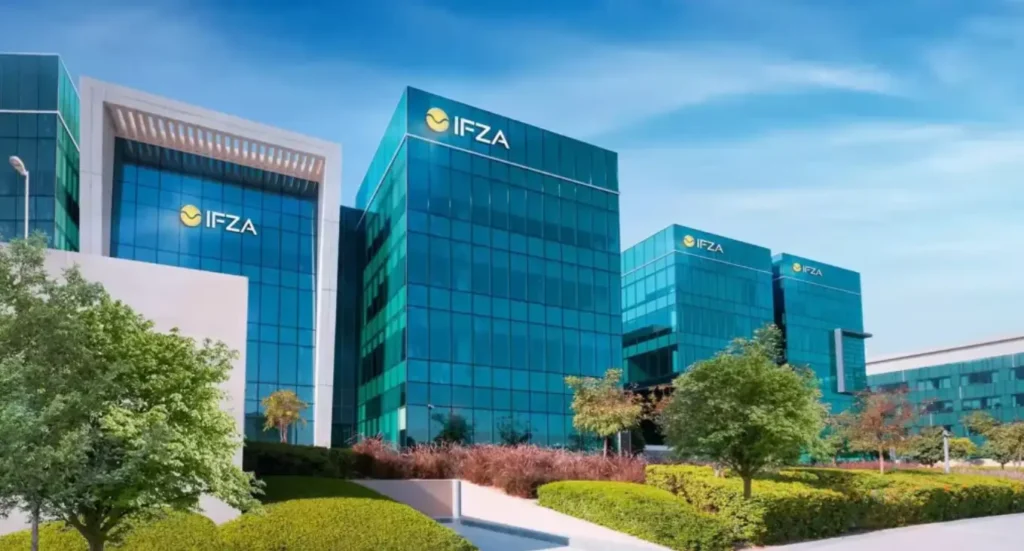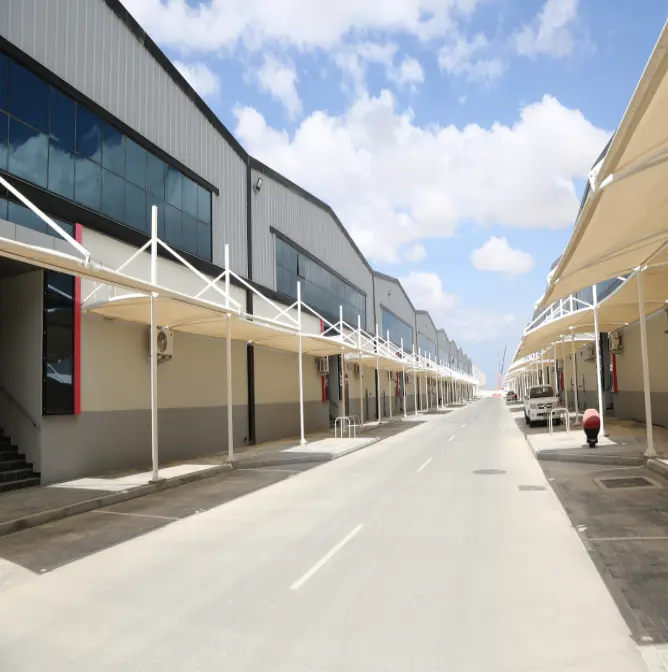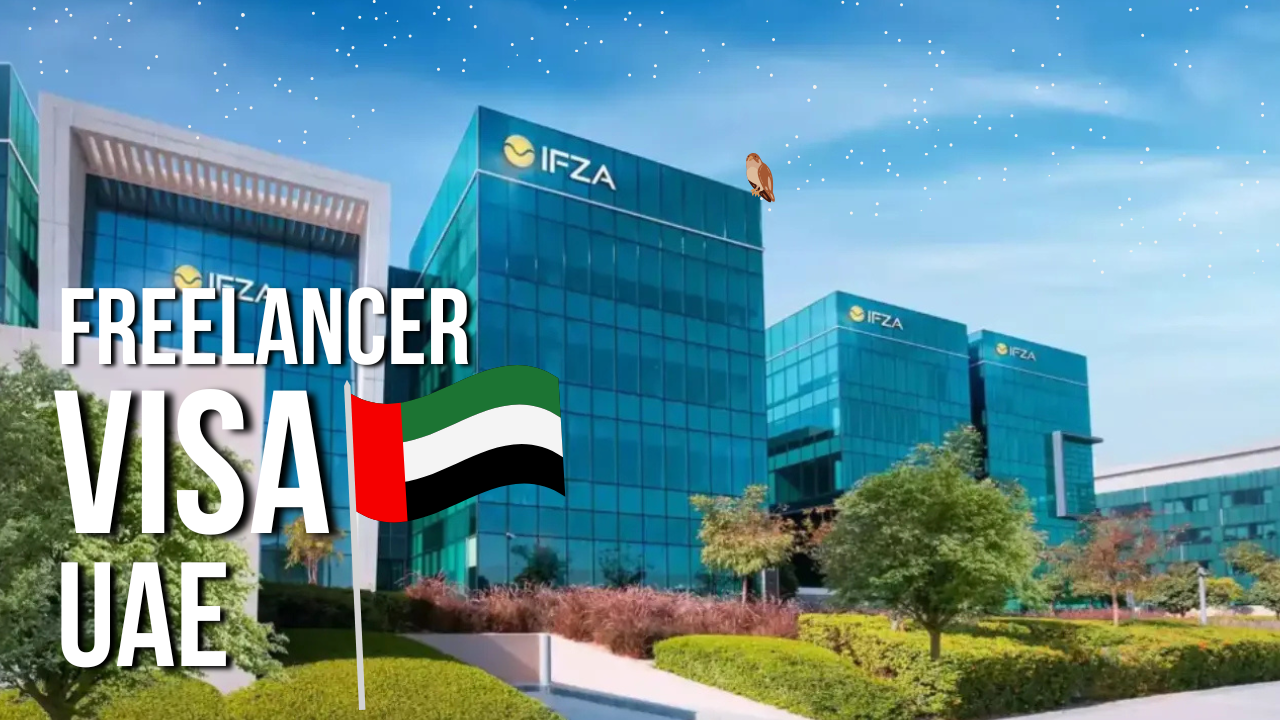The United Arab Emirates (UAE) has long been a hub for entrepreneurs, professionals, and freelancers seeking opportunities in a dynamic and business-friendly environment. With its strategic location, tax-free income, and world-class infrastructure, the UAE is an attractive destination for freelancers from around the globe. One of the most accessible ways to establish yourself as a freelancer in the UAE is through the freelancer visa offered by various free zones. In this blog, we’ll explore everything you need to know about obtaining a freelancer visa in the UAE through free zones.

Also Read: Dubai Trade Scam: Indian Firm ‘Dynamic’ Vanishes with AED 12 Million
What is a Freelancer Visa?
A freelancer visa is a residency permit that allows individuals to work independently in the UAE without being tied to a specific employer. It is designed for professionals who offer services in fields such as media, technology, education, consulting, design, and more. The visa grants you the legal right to live and work in the UAE while operating as a freelancer.
Free zones in the UAE play a significant role in facilitating freelancer visas. These zones are designated areas that offer 100% foreign ownership, tax exemptions, and streamlined processes for setting up businesses or working as a freelancer.
Why Choose a Free Zone for a Freelancer Visa?
Free zones are particularly popular among freelancers for several reasons:
- Ease of Setup: Free zones offer simplified processes for obtaining a freelancer visa, often with minimal paperwork and quick turnaround times.
- Cost-Effective: Compared to setting up a mainland company, freelancing through a free zone is more affordable, with flexible payment options.
- Tax Benefits: Free zones provide tax-free income, making it an attractive option for freelancers.
- Networking Opportunities: Free zones are home to a diverse community of professionals and businesses, offering excellent networking opportunities.
- Access to Facilities: Many free zones provide access to co-working spaces, meeting rooms, and other business amenities.
Popular Free Zones Offering Freelancer Visas
Several free zones in the UAE offer freelancer visas, each catering to specific industries. Here are some of the most popular ones:
- Dubai Media City (DMC)
Ideal for media professionals, including journalists, photographers, content creators, and PR specialists. - Dubai Internet City (DIC)
Tailored for IT professionals, software developers, and digital marketers. - Sharjah Media City (Shams)
Offers freelancer visas for media, marketing, and creative professionals. - Abu Dhabi Hub
A great option for freelancers in Abu Dhabi, offering visas for various industries. - RAKEZ (Ras Al Khaimah Economic Zone)
Provides affordable freelancer packages for a wide range of professions. - Fujairah Creative City
Known for its cost-effective freelancer visa packages, suitable for creatives and consultants.

Also Read: Gulfood 2025: Three Decades of Shaping the Future of Food
Eligibility Criteria for a Freelancer Visa
While the specific requirements may vary depending on the free zone, the general eligibility criteria for a freelancer visa include:
- Valid Passport: A passport with at least six months’ validity.
- Professional Qualifications: Relevant qualifications or experience in your field.
- Business Activity: Your freelance activity must align with the free zone’s permitted activities.
- No Objection Certificate (NOC): If you are currently employed in the UAE, you may need an NOC from your employer.
- Proof of Income: Some free zones may require proof of income or a minimum salary threshold.
Steps to Obtain a Freelancer Visa in a Free Zone
- Choose a Free Zone
Research and select a free zone that aligns with your profession and offers the best package for your needs. - Submit an Application
Complete the application form and submit the required documents, such as your passport copy, CV, and proof of qualifications. - Obtain Approval
Once your application is approved, you will receive a freelance permit from the free zone authority. - Apply for a Residency Visa
With the freelance permit, you can apply for a residency visa, which includes a Emirates ID and a medical fitness test. - Open a Bank Account
Some free zones require you to open a bank account to facilitate your freelance activities. - Start Freelancing
Once your visa is issued, you can legally operate as a freelancer in the UAE.
Cost of a Freelancer Visa in Free Zones
The cost of a freelancer visa varies depending on the free zone and the package you choose. On average, the total cost ranges from AED 7,000 to AED 15,000, which includes:
- Freelance permit fees
- Visa processing fees
- Emirates ID and medical test fees
- Optional add-ons like co-working space or business setup support

Also Read: Ringing in the New Year 2025: Dubai’s Spectacular Celebrations
Benefits of a Freelancer Visa in the UAE
- Legal Residency: You can live and work in the UAE legally without sponsorship from an employer.
- Tax-Free Income: Enjoy 100% tax-free earnings as a freelancer.
- Access to Global Markets: The UAE’s strategic location provides access to markets in the Middle East, Asia, and beyond.
- Work-Life Balance: The UAE offers a high standard of living, with world-class amenities and a vibrant expat community.
- Long-Term Opportunities: A freelancer visa can be a stepping stone to establishing a full-fledged business in the UAE.
Challenges to Consider
While the freelancer visa offers numerous benefits, there are a few challenges to keep in mind:
- Limited Scope: Some free zones restrict freelancers to operating only within the free zone or the UAE.
- Renewal Costs: Freelancer visas are typically valid for 1-3 years and must be renewed, incurring additional costs.
- Competition: The UAE’s freelancing market is competitive, so building a client base may take time.
Tips for Success as a Freelancer in the UAE
- Network Actively: Attend industry events and join professional groups to connect with potential clients.
- Leverage Online Platforms: Use platforms like LinkedIn, Upwork, and Freelancer to showcase your skills and find projects.
- Stay Compliant: Ensure you adhere to all regulations and renew your visa and permits on time.
- Invest in Marketing: Build a strong online presence through a professional website and social media channels.
- Deliver Quality Work: Reputation is key in the freelancing world, so focus on delivering exceptional results to build long-term client relationships.

Also Read: Navigating New Landscape: Visa Changes in the UAE
Conclusion
The freelancer visa offered by UAE free zones is an excellent opportunity for professionals to establish themselves in one of the world’s most dynamic business environments. With its ease of setup, tax benefits, and access to global markets, the UAE is a prime destination for freelancers looking to take their careers to the next level. By choosing the right free zone and following the necessary steps, you can turn your freelancing dreams into reality in the UAE.
Whether you’re a digital nomad, a creative professional, or a tech expert, the UAE’s freelancer visa opens the door to endless possibilities. Start your journey today and become part of the thriving freelance community in the UAE.
What is a freelancer visa in the UAE, and who is eligible to apply?
A freelancer visa in the UAE is a residency permit that allows individuals to work independently without being tied to a specific employer. It’s designed for professionals across various fields, including media, technology, education, consulting, and design. Eligibility criteria generally include having a valid passport with at least six months’ validity, relevant professional qualifications or experience, and ensuring that your freelance activity aligns with the permitted activities of the chosen free zone. If you’re currently employed in the UAE, you may also need a No Objection Certificate (NOC) from your employer.
Why should a freelancer consider setting up in a UAE free zone?
Free zones in the UAE offer several advantages for freelancers:
Ease of Setup: Simplified processes with minimal paperwork and quick turnaround times.
Cost-Effectiveness: More affordable options compared to setting up a mainland company, with flexible payment plans.
Tax Benefits: Income earned is tax-free, enhancing financial benefits.
Networking Opportunities: Access to a diverse community of professionals and businesses, fostering collaboration and growth.
Access to Facilities: Many free zones provide co-working spaces, meeting rooms, and other essential business amenities.
What are the steps to obtain a freelancer visa in a UAE free zone?
The process typically involves the following steps:
Choose a Free Zone: Research and select a free zone that aligns with your profession and offers suitable packages.
Submit an Application: Complete the application form and provide required documents, such as a passport copy, CV, and proof of qualifications.
Obtain Approval: Upon approval, you’ll receive a freelance permit from the free zone authority.
Apply for a Residency Visa: With the freelance permit, apply for a residency visa, which includes obtaining an Emirates ID and undergoing a medical fitness test.
Open a Bank Account: Some free zones require opening a local bank account to facilitate your freelance activities.
Start Freelancing: Once your visa is issued, you can legally operate as a freelancer in the UAE.

